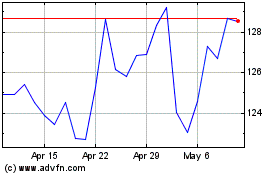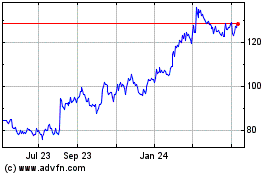UNITED STATES
SECURITIES AND EXCHANGE COMMISSION
Washington, D.C. 20549
________________
FORM 6-K
________________
REPORT OF FOREIGN PRIVATE ISSUER
Pursuant to Rule 13a-16 or 15d-16
of the Securities Exchange Act of 1934
February 28, 2017
________________
NOVO NORDISK A/S
(Exact name
of Registrant as specified in its charter)
Novo Allé
DK- 2880, Bagsvaerd
Denmark
(Address of principal executive offices)
________________
Indicate by check mark whether the registrant files or will file annual reports under
cover of Form 20-F or Form 40-F
|
Form 20-F [X]
|
Form 40-F [ ]
|
Indicate by check mark whether the registrant by furnishing the information contained
in this Form is also thereby furnishing the information to the Commission pursuant to Rule 12g3-2(b) under the Securities Exchange
Act of 1934.
If “Yes” is marked, indicate below the file number assigned to the registrant
in connection with Rule 12g-32(b):82-________


Novo Nordisk files for regulatory approval of once-
weekly semaglutide for the treatment of type 2 diabetes in Japan
Bagsværd, Denmark, 28 February 2017
– Novo Nordisk
today announced the submission of a New Drug Application (NDA) to the Japanese Ministry of Health, Labour and Welfare for semaglutide,
a new glucagon-like peptide-1 (GLP-1) analogue administrated once-weekly, for the treatment of adults with type 2 diabetes. The
Japanese filing follows the recent once-weekly semaglutide regulatory submissions to the US Food and Drug Administration (FDA),
the European Medicines Agency (EMA), Health Canada and SwissMedic.
The Japanese submission is based on results from the SUSTAIN clinical
trial programme. The SUSTAIN programme involved more than 8,000 adults with type 2 diabetes, with approximately 1,200 participants
from Japan. Trial participants were treated with once- weekly semaglutide as monotherapy, or with oral-antidiabetic (OAD) agents
or in combination with OADs and basal insulin. Across the SUSTAIN programme, once-weekly semaglutide demonstrated statistically
significant reductions in HbA
1c
as well as statistically significant reductions in mean body
weight compared to sitagliptin, exenatide extended-release, once-daily insulin glargine U100 and placebo.
Across the SUSTAIN clinical trial programme, once-weekly semaglutide
had a well- tolerated safety profile, with the most common adverse event being nausea.
“We are very excited about having filed the regulatory
application for once-weekly semaglutide in Japan,” said Mads Krogsgaard Thomsen, executive vice president and chief scientific
officer of Novo Nordisk. “Based on the results from the global SUSTAIN clinical trial programme, we believe that once-weekly
semaglutide has the potential to improve the treatment for many type 2 patients in Japan.”
Page 2 of 4
About semaglutide
Semaglutide is a once-weekly analogue of human GLP-1 that stimulates insulin
and suppresses glucagon secretion in a glucose-dependent manner, while decreasing appetite and food intake. Novo Nordisk intends
to make once-weekly semaglutide available in a prefilled delivery device based on the same technology platform as FlexTouch
®
.
About the SUSTAIN phase 3a clinical trial programme
SUSTAIN is a global clinical trial programme for once-weekly semaglutide
that comprises seven phase 3a clinical trials and a cardiovascular outcomes trial, involving more than 8,000 adults with type 2
diabetes.
The SUSTAIN Japan Monotherapy trial showed that, from a mean
baseline HbA
1c
of 8.1%, 308 adults with type 2 diabetes treated once-weekly with 0.5 mg or
1.0 mg semaglutide achieved statistically significantly greater HbA
1c
reductions of 1.9%
and 2.2%, respectively, vs 0.7% with 100 mg sitagliptin at 30 weeks, both as monotherapy. Additionally, from a mean baseline body
weight of 69.3 kg, adults treated with 0.5 mg or 1.0 mg semaglutide achieved statistically significantly greater weight loss of
2.2 kg and 3.9 kg, respectively, compared with no change in body weight with sitagliptin.
The SUSTAIN Japan OAD combination trial showed that, from a mean baseline
HbA
1c
of 8.1%, 600 adults with type 2 diabetes treated once-weekly with 0.5 mg or 1.0 mg semaglutide,
as monotherapy or in combination with one OAD treatment, achieved statistically significantly greater HbA
1c
reductions of 1.7% and 2.0%, respectively, vs 0.7% with OAD therapy at 56 weeks. In addition, from a mean baseline weight
of 71.5 kg, adults treated with 0.5 mg or 1.0 mg semaglutide achieved statistically significant weight loss of 1.4 kg and 3.2 kg,
respectively, compared with a weight gain of 0.4 kg with OAD therapy.
The SUSTAIN 1 trial showed that, from a mean baseline HbA
1c
of 8.1%, 388 adults treated with 0.5 mg or 1.0 mg semaglutide achieved statistically significantly greater HbA
1c
reductions of 1.5% and 1.6%, respectively, vs <0.1% with placebo. The trial also demonstrated that adults treated with
0.5 mg or 1.0 mg semaglutide achieved statistically significantly greater reductions from baseline in mean body weight of 3.7 kg
and 4.5 kg, respectively, vs 1.0 kg with placebo.
The SUSTAIN 2 trial showed that from a mean baseline HbA
1c
of 8.1%, 1,231 adults with type 2 diabetes treated with 0.5 mg or 1.0 mg semaglutide achieved statistically significantly
greater HbA
1c
reductions of 1.3% and 1.6%, respectively, vs 0.5% with 100 mg sitagliptin at
56 weeks (both p<0.0001), as add-on to metformin and/or thiazolidinediones. In addition, from a mean baseline body weight of
89.5 kg, adults with type 2 diabetes achieved statistically significantly greater reductions in mean body weight when treated with
0.5 mg or 1.0 mg semaglutide vs sitagliptin (4.3 kg and 6.1 kg vs 1.9 kg; both p<0.0001).
Page 3 of 4
The SUSTAIN 3 trial showed that 813 adults with type 2 diabetes and a mean
baseline HbA
1c
of 8.3% achieved a statistically significantly greater HbA
1c
reduction of 1.5% when treated with 1.0 mg semaglutide vs 0.9% with 2.0 mg exenatide extended-release (ER) (p<0.0001),
as add-on to one or two oral antidiabetics (metformin, sulfonylurea or thiazolidinediones). Furthermore, from a mean baseline body
weight of 95.8 kg, adults with type 2 diabetes achieved a statistically significantly greater reduction in mean body weight when
treated with 1.0 mg semaglutide vs exenatide ER in SUSTAIN 3 (5.6 kg vs 1.9 kg; p<0.0001).
The SUSTAIN 4 trial showed that from a mean baseline HbA
1c
of 8.2%, 1,089 adults with type 2 diabetes receiving metformin with or without sulfonylurea, achieved statistically significantly
greater improvements in HbA
1c
reductions of 1.2% and 1.6% when treated with 0.5 mg or 1.0
mg semaglutide, respectively, vs a 0.8% reduction with insulin glargine U100 (p<0.0001 for both). End of trial mean dose of
insulin glargine U100 was 29 IU/day. Additionally, from a mean baseline body weight of 93.4 kg, adults treated with 0.5 mg or 1.0
mg semaglutide achieved statistically significantly greater reductions in mean body weight of 3.5 kg and 5.2 kg compared to an
increase of 1.2 kg with insulin glargine U100 (p<0.0001 for both).
The SUSTAIN 5 trial showed that, from a mean baseline HbA
1c
of 8.4%, 397 adults treated with 0.5 mg or 1.0 mg semaglutide achieved statistically significantly greater HbA
1c
reductions of 1.4% and 1.8%, respectively, vs 0.1% reduction with placebo, when added on to basal insulin with or without
metformin. In addition, adults with type 2 diabetes treated with 0.5 mg or 1.0 mg semaglutide achieved statistically significantly
greater weight loss vs placebo (3.7 kg and 6.4 kg vs 1.4 kg) from a mean baseline body weight of 91.7 kg.
In the SUSTAIN 6 trial, once-weekly semaglutide statistically significantly
reduced the risk of major adverse cardiovascular events (MACE), defined as the composite endpoint of time to first occurrence of
either cardiovascular (CV) death, nonfatal myocardial infarction or non-fatal stroke, by 26% vs placebo, when added to standard
of care in 3,297 adults with type 2 diabetes at high CV risk.
About Novo Nordisk
Novo Nordisk is a global healthcare
company with more than 90 years of innovation and leadership in diabetes care. This heritage has given us experience and capabilities
that also enable us to help people defeat other serious chronic conditions: haemophilia, growth disorders and obesity. Headquartered
in Denmark, Novo Nordisk employs approximately 42,000 people in 77 countries and markets its products in more than 165 countries.
Novo Nordisk's B shares are listed on Nasdaq Copenhagen (Novo-B). Its ADRs are listed on the New York Stock Exchange (NVO). For
more information, visit novonordisk.com, Facebook, Twitter, LinkedIn, YouTube
Page 4 of
4
Further information
|
Media:
|
|
|
|
Katrine Sperling
|
+45 4442 6718
|
krsp@novonordisk.com
|
|
Ken Inchausti (US)
|
+1 609 786 8316
|
kiau@novonordisk.com
|
|
|
|
|
|
Investors
:
|
|
|
|
Peter Hugreffe Ankersen
|
+45 3075 9085
|
phak@novonordisk.com
|
|
Hanna Ögren
|
+45 3079 8519
|
haoe@novonordisk.com
|
|
Anders Mikkelsen
|
+45 3079 4461
|
armk@novonordisk.com
|
|
Kasper Veje (US)
|
+1 609 235 8567
|
kpvj@novonordisk.com
|
|
Novo Nordisk A/S
Investor Relations
|
Novo Allé
2880 Bagsværd
Denmark
|
Telephone:
+45 4444 8888
|
Internet:
www.novonordisk.com
CVR no:
24 25 67 90
|
|
|
|
Company announcement No 15 / 2017
|
SIGNATURES
Pursuant to the requirements of the Securities Exchange Act of 1934, the Registrant has
duly caused this report to be signed on its behalf of the undersigned, thereunto duly authorized.
|
Date: February 28, 2017
|
NOVO NORDISK A/S
Lars Fruergaard Jørgensen
Chief Executive Officer
|
Novo Nordisk (NYSE:NVO)
Historical Stock Chart
From Mar 2024 to Apr 2024

Novo Nordisk (NYSE:NVO)
Historical Stock Chart
From Apr 2023 to Apr 2024
